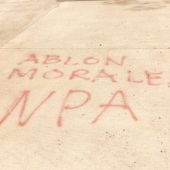The South Central Luzon Bishops Conference (SCLBC) of the Iglesia Filipina Independiente commemorated the anniversary of Bishop Alberto Ramento’s martyrdom in a memorial ceremony held at the Cathedral of the Holy Child in Mandaluyong City on Oct. 3, 2022.
The event, with the theme, “Prophesying Peace: Telling A Counternarrative to Red-tagging,” was the first face-to-face Ramento commemoration since the COVID-19 pandemic broke out in early 2020.
Some 100 priests and members of the laity from dioceses in South Central Luzon, as well as friends from the ecumenical community, joined the gathering paying tribute to the “bishop of the poor peasant and workers,” who championed the welfare and land rights of the exploited workers of Hacienda Luisita and other vulnerable sectors.
Bishop Ramento was killed 16 years ago inside the IFI church building in Tarlac City. His death is widely acknowledged as an extrajudicial killing, transpiring while the provincial state forces were under the disgraced Gen. Jovito Palparan, a.k.a. “The Butcher.”
Before his murder, the bishop was red-tagged, reason the event zeroed in on the rampant phenomenon that has vilified human rights defenders. This include faith-based defenders who see working for social justice as “prophesying peace.”
Lawyer Juliane Agpalo of the National Union of People’s Lawyers (NUPL) shared in a lecture the dangers red-tagging poses on people. She also imparted tips to successfully combat it.
Agpalo urged everyone to take red-tagging seriously: “Church members should continue to play a proactive role in denouncing attempts by the government to designate human rights defenders, peace advocates and social activists as ‘communists’ and ‘terrorists.’”
“The government’s red-tagging narratives need to have a counternarrative, a task which we must do,” the woman attorney said. “When we all speak up for the truth, the spread of lies and disinformation will be stopped.”
Vaughn Alviar of the Ramento Project for Rights Defenders (RPRD) cited in his input the ongoing persecution of IFI church workers because of their involvements with progressive and people’s organizations.
He particularly noted the attacks against Bishop Emelyn Dacuycuy and 3 other priests in Ilocos Norte and the arrest of Cagayan De Oro leader Aldeem Yañez. He said the attacks that would happen both online and offline often persisted and led to other dangers, like fabricated charges and death threats.
Alviar commended the SCLBC for standing up to the government’s relentless and intensifying crackdown on activists, including faith-based human rights defenders.
He reminded the audience: “In seeking justice for the victims of tokhang, we said, ‘Huwag kang papatay.’ When we reminded voters among our flock to vote for principled leaders, we said, ‘Huwag kang magnanakaw.’ Here is an opportunity to insist of one other Commandment, ‘Huwag kang magbibintang at huwag kang magsisinungaling.’ Red-tagging is lying. Red-tagging is bearing false witness.”
Alviar, also an ecumenical youth leader and national officer of the Youth of the IFI, was coincidentally implicated in recent attacks growing out of accusations meant for the United Church of Christ in the Philippines and its Christian Youth Fellowship.
Pages and accounts surfaced on Facebook beginning Oct.4 accusing church leaders of support or recruitment to the New People’s Army, the armed wing of the Communist Party of the Philippines. These also implicated the church’s ecumenical partners and friends, including Mindanao-based IFI bishops and priests.
“The branding is highly malicious and grossly unjust for it simply intends to discredit and malign the IFI and its clergy and lay members in general,” in response to the incident. “[Red-tagging] violates democratic processes and transgresses human rights of the individual persons. Red-tagging places at risk the institution and persons and makes them vulnerable to all forms of state repression and attack.”
He insisted that the advocacies attached to communism in the recent activities “are integral part of the core work of church’s mission and ministry, they are basic tasks in the proclamation of the gospel and in the realization of God’s kingdom which the IFI, and for that matter all churches, is called and commissioned to.”


